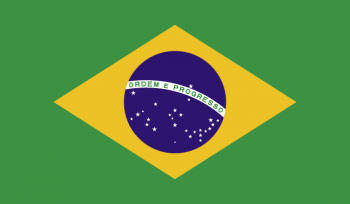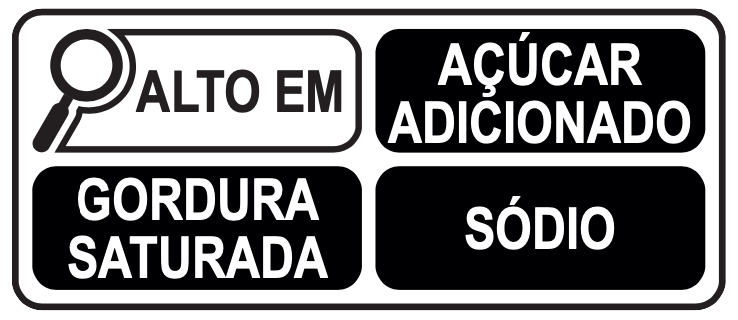
The largest country in South America, Brazil has faced rapid increases in overweight and obesity prevalence similar to its other countries in Latin America. Members of our team have been collaborating with colleagues at the University of São Paulo since the early 1990s. We currently provide research support for work including:
- Randomized controlled trials using an experimental online shopping store, testing Brazil’s front-of-package warning labels using two different nutrient profiling models;
- Monitoring changes in the food supply following implementation of Brazil’s front-of-package warning labels; and
- Evaluation of Brazil’s innovative National School Feeding Program (PNAE). This includes:
- Municipalities’ and states’ readiness to meet new PNAE dietary guidelines (based on updated Brazilian Dietary Guidelines);
- Changes in procurement of ultra-processed foods, including regional differences;
- PNAE’s impact on conventional and family farming-related employment and gross domestic product contribution;
- Qualitative analysis of drivers and barriers to PNAE’s optimum program implementation; and
- Changes in primary and secondary students’ consumption of healthy and unhealthy foods.
Policy Research
Policies
Law No. 11.947 | Implemented April 28, 2009 + Resolution No. 6 of May 8, 2020 | Implemented December 5, 2020
National School Meals Program / Programa Nacional de Alimentação Escolar (PNAE)
Law No. 11.947 (implemented 2009) set some principles for provision of school meals in Brazil, including that students have a right to school meals that provide them with food and nutritional security; that the food provided should be healthy, varied, and respect local culture as well as specific needs; and that nutrition education should be included in the school curriculum. Additionally, the law provided funding for the National School Meals Program (PNAE).
Resolution No. 6 of May 8, 2020 (implemented December 2020) modified the guidelines for allocation of PNAE funds, imposing the following series of restrictions:
- Financial restriction for acquisition of processed and ultra-processed products (UPPs):
- At least 75% must be used to buy fresh or minimally processed foods;
- 20% at most can be used to buy processed and UPPs;
- A maximum of 5% can be used to purchase processed culinary ingredients.
- Maximum limits for certain UPPs to appear on school menus
- For example, milk drinks with additives or sweeteners would be allowed twice a month at most; UPP meat twice a month at most; sweets once a month at most, etc.
- A ban on adding sugar, honey, or sweeteners to culinary preparations and beverages aimed at children aged three years or younger
- A ban on the use of funds to purchase the following UPPs: soft drinks and artificial refreshments, drinks or concentrates based on guarana or currant syrup, ready-to-drink teas, sweetened cereals or cereals with additives, candies, chocolate bars, stuffed biscuits, cakes with topping or filling, sweetened cereal bars with additives, gelatin, monosodium glutamate or sodium salts, mayonnaise and powdered or reconstituted food, among others.
- Some guidelines on nutrition education, including social, financial, and environmental sustainability; respect of local traditions; autonomy and self-care.
Resolution of the Collegiate Board 429 and Normative Instruction 75 | Passed October 9, 2020
Front-of-package warning labels
The National Agency of Sanitary Surveillance (ANVISA) published new regulations on nutrition labeling of packaged food products in October, 2020. They will go into effect in October, 2022 and will require front-of-package warning labels on packaged foods and beverages that exceed set levels of sugar, saturated fat, or sodium content per 100g (foods) or 100mL (beverages). The new model does not include warnings for non- caloric sweeteners, but it will limit the use of health claims in certain circumstances: Foods and drinks with warning labels for a given nutrient may no longer carry claims related to that nutrient. For example, products with a warning label for high saturated fat content cannot also use claims regarding fat (total, saturated, or trans fats or cholesterol).

In-Country Research Partner
In-Country Team Leads
- Carlos Monteiro - Professor, São Paulo University Department of Nutrition School of Public Health
- Ana Clara Duran - Research Scientist, University of Campinas, UNICAMP Research Fellow Center for Epidemiological Studies in Nutrition and Health, NUPENS University of São Paulo
GFRP Team Leads
Publications
-
“Warning: ultra-processed”: an online experiment examining the impact of ultra-processed warning labels on consumers’ product perceptions and behavioral intentions
Authors: Aline D'Angelo Campos, Shu Wen Ng, Ana Clara Duran, Neha Khandpur, Lindsey Smith Taillie, Fernanda Christon, Marissa Hall
Published in: International Journal of Behavioral Nutrition and Physical Activity, October 9, 2024 view full text -
Prevalence of low-calorie sweeteners and related front-of-package claims in the Brazilian packaged food supply
Authors: Mariana Fagundes Grilo, Lindsey Smith Taillie, Camila Zancheta Ricardo, Laís Amaral Mais, Ana Paula Bortoletto Martins, Ana Clara Duran
Published in: Journal of the Academy of Nutrition and Dietetics, December 22, 2021 -
Conflicting messages on food and beverage packages: Front-of-package nutritional labeling, health and nutrition claims in Brazil
Authors: Ana C. Duran, Camila Z. Ricardo, Lais A. Mais, Ana P. B. Martins, Lindsey S. Taillie
Published in: Nutrients, December 5 2020 view full text -
A research agenda to guide progress on childhood obesity prevention in Latin America
Authors: Kline L, Jones-Smith J, Jaime Miranda J, Pratt M, Reis RS, Juan A. Rivera, Sallis JF, Barry M. Popkin.
Published in: Obesity Reviews, July 2017 view full text -
Nutrition status of children in Latin America
Authors: Corvalán C, Garmendia ML, Jones-Smith J, Lutter CK, Miranda JJ, Lilia S. Pedraza, Barry M. Popkin, Ramirez-Zea M, Salvo D, Stein AD.
Published in: Obesity Reviews, July 2017 view full text